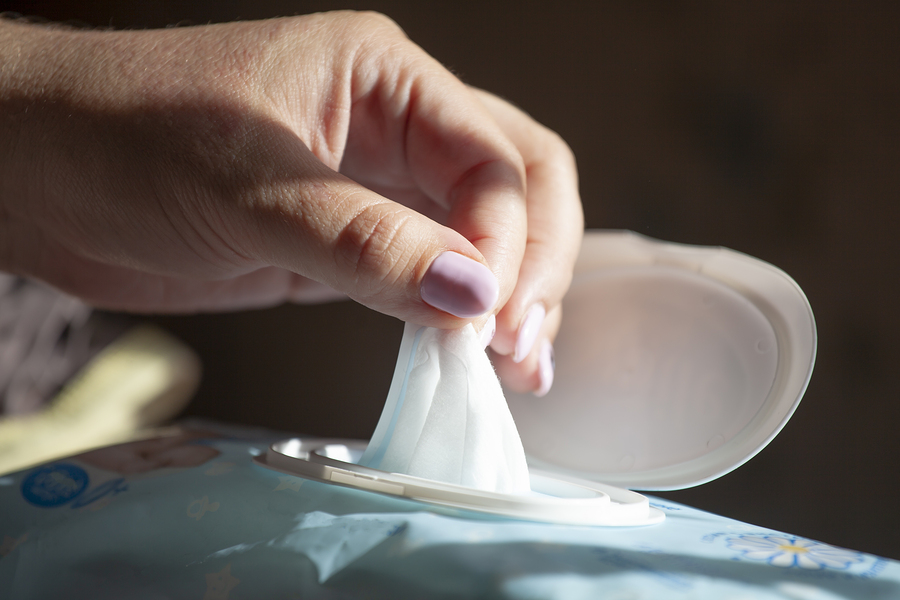Could you give up using wet wipes?
With the Environment Secretary Michael Gove this week confirming a ban on the supply of plastic straws, stirrers and cotton buds from April 2020, businesses are starting to wake up to the reality of the impact these items are having on the environment.
Holland & Barrett, one of the first high street retailers to ban plastic bags and microplastics are going one step further and are now set to ban all wet wipes from its stores, pledging to do so by September 2019.
Wet wipes are a huge environmental concern. It is estimated that 9.3 million wet wipes are flushed down toilets every day – the environmental damage they cause to our animals, not to mention our sewage systems, is enormous.
Most wet wipes contain non-biodegradable plastic which slowly breaks down into microscopic fibres. These can end up on our rivers and seas and even enter animal and human food chains. Wet wipes also pose a monumental problem for sewage systems. Not as dissolvable as toilet paper, wet wipes cause major blockages. In 2017 Water UK reported that over 90% of material causing sewer blockages came from wet wipes, even from the ones that assure us they are flushable.
Water companies nationwide are urging us not to flush anything down our toilets apart from the 3P’s – Paper, Pee and Poo!
Wet wipes are extremely handy and may even be deemed necessary in medical situations so should the use of them simply be scaled down or banned completely? How often do you use wet wipes? Could you use a damp cloth instead?




















